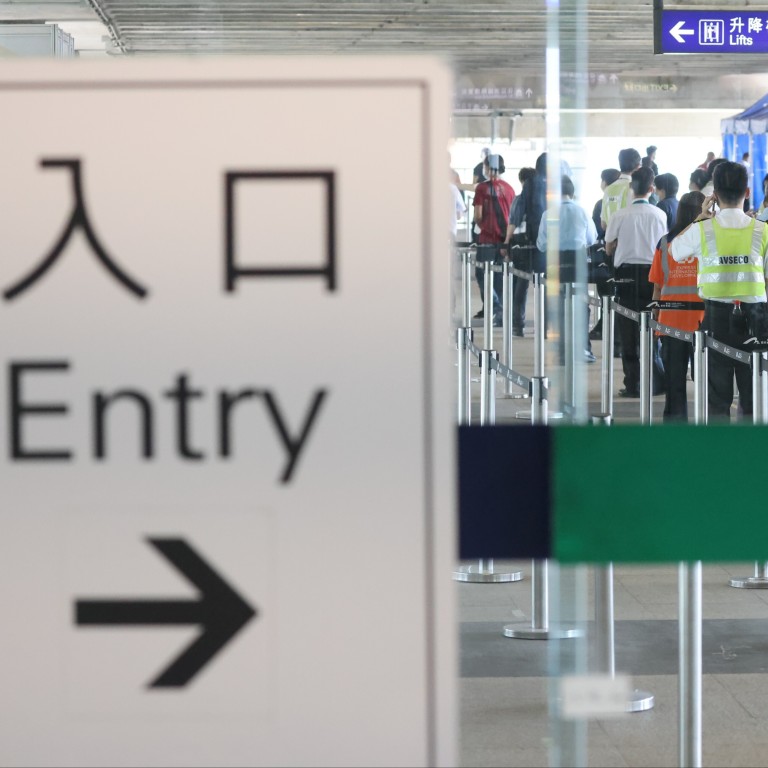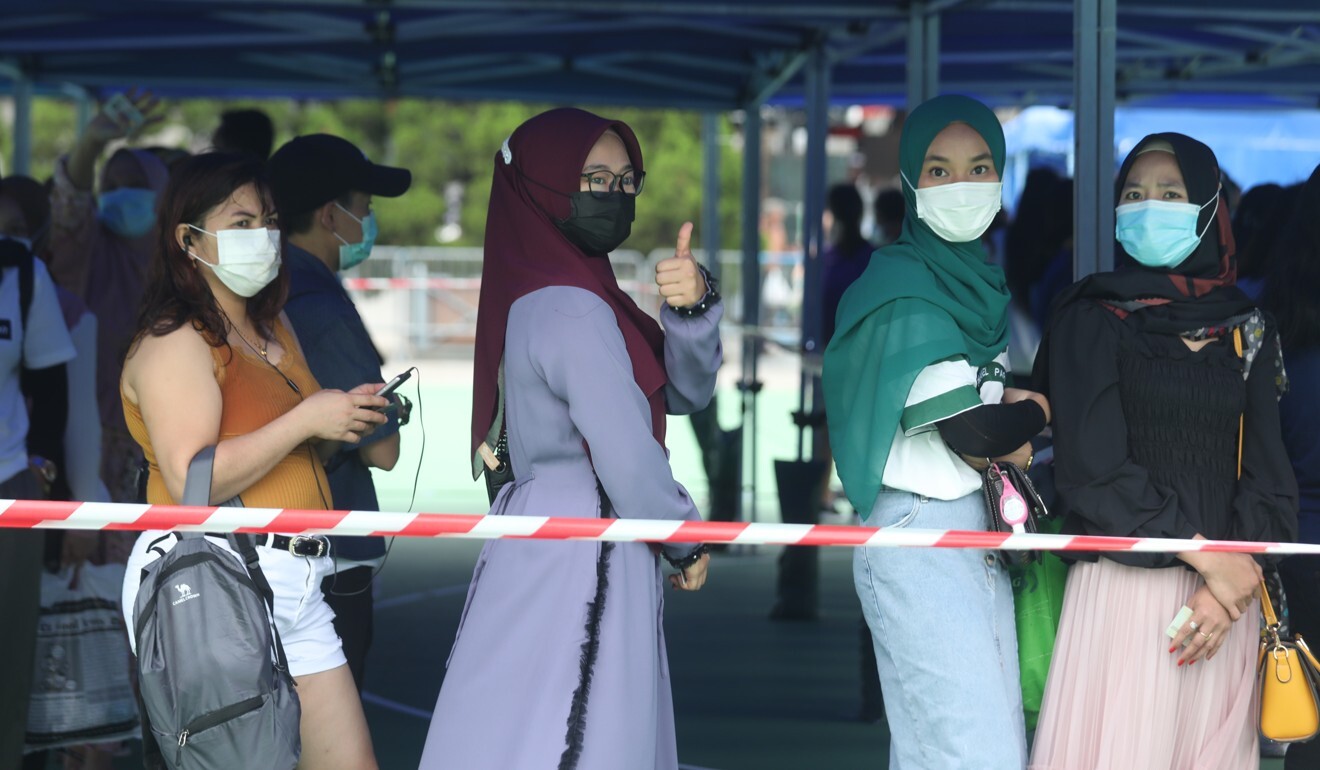
Coronavirus: Hong Kong’s entry ban relaxation leaves helpers with unrecognised vaccine records on outside looking in
- Jabs records only recognised if received in city, mainland China or countries identified by the WHO – a category that does not include the Philippines or Indonesia
- Some students stranded in Britain, meanwhile, bemoan plan’s timing, saying it arrived too late for them to make a trip home before classes resume
But a source familiar with the matter said only those with vaccination records from Hong Kong, mainland China or countries recognised by the World Health Organization (WHO) as having stringent regulatory authorities would be allowed to enter the city.
Hong Kong to lift ban on residents, workers returning from extremely high-risk areas
Among the eight countries, only Britain is on the WHO list. Brazil, India, Indonesia, Nepal, Pakistan, the Philippines and South Africa are the seven other countries deemed extremely high risk.
The city banned direct flights from the Philippines on April 20, while planes from Indonesia were suspended from June 25 – the dates on which each were labelled extremely high risk. The two countries supply most of the 370,000 helpers in the city.
Since Hong Kong’s vaccination drive was expanded to include domestic workers on March 16, about 41 per cent, or 150,0000 of the helpers living in the city, had been fully vaccinated as of Wednesday – significantly higher than the rate for the general population.
Thomas Chan Tung-fung, chairman of the Hong Kong Union of Employment Agencies, predicted that even if the government allowed vaccinated domestic helpers to return to the city this month, fewer than 10 per cent of the estimated 5,000 stranded in the two countries would be able to do so in the first week. Many of the 5,000 were new hires, he added.

Even if the recognition system for vaccines was put in place soon, he expected they could only arrange for those currently stranded to fly to the city in mid-August.
“They just started to give vaccinations to workers [in the Philippines]. Probably in the second week of June, they received the first dose. Even if they have received the second dose, they still have to wait 14 days for it to work,” he said.
While the source said the government would work with the two countries on a mechanism for recognising their vaccination records, Chan said it remained unclear how this could be done as the Philippines and Indonesia did not have a centralised record system for the jabs.
“In different provinces in the Philippines and Indonesia, they have different certificates to prove a person’s vaccination. There is no centralised certificate or central data bank for people to check their vaccination status,” he said.
“If the Hong Kong government is really determined to have special arrangements for domestic helpers, they can discuss with the Philippine and Indonesian governments on how to coordinate, and how to unify the vaccination certificates.”
The low vaccination rates in the two Southeast Asian countries are also a result of the lack of supply and distribution issues.
About 9 per cent of the Philippines’ roughly 110 million people have received one vaccine shot, while those who have taken both jabs represent just 3.53 per cent of the population.
Indonesia records more daily coronavirus cases than India; Singapore cluster grows
Indonesia also lagged behind its vaccination goals, even as its Covid-19 cases surged on Wednesday when it recorded a new high of 54,517 infections, up from fewer than 10,000 daily cases a month ago.
Meanwhile, the source said that unvaccinated minors stranded in Britain, one of the eight countries currently deemed extremely high risk by the Hong Kong government, would be allowed to return on “compassionate grounds”.
But the city’s constant flip-flopping over its flight suspension mechanism and track record of refusing entry to fully vaccinated travellers from Britain wanting to return to Hong Kong has left those potentially eligible for the plan doubting its feasibility.
“What’s the point of it? You’re still asking me to quarantine,” said university student Beth Chan, who has given up flying back from Edinburgh to see her family.
Under the plan, those eligible to return would still be subject to a 21-day quarantine in a designated hotel, four tests during the isolation, and another seven days of self-monitoring, with a final test on the 26th day upon arrival.
It would have been more helpful if the government announced this earlier in the summer. At this point, you’re not helping anyone by announcing it now
The 20-year-old, who expects to receive her first jab this week, said even if she were fully vaccinated and could get a flight back soon, she would not be out of quarantine until mid-August, while many universities in Britain start classes in early September.
“It would have been more helpful if the government announced this earlier in the summer,” she said. “At this point, you’re not helping anyone by announcing it now.”
The plan could help Kelly Tse Ka-yin, a 22-year-old health care student studying in Norwich who originally planned to return to Hong Kong in August after her placement. She said the new measure would make her life much easier.
“I’m a final-year student now, and my accommodation licence is going to end soon,” she said. “I really need to return to Hong Kong, otherwise I may have to live on the streets.”
Tina Fan, a 21-year-old final year physiotherapy student who was also vaccinated, recalled asking the Chinese embassy and the Department of Health for help after her flight in July was cancelled.
“My visa is expiring on October 11 and the lease for my accommodation ends on July 31,” she said. “Without this plan, I’ll become homeless.”


